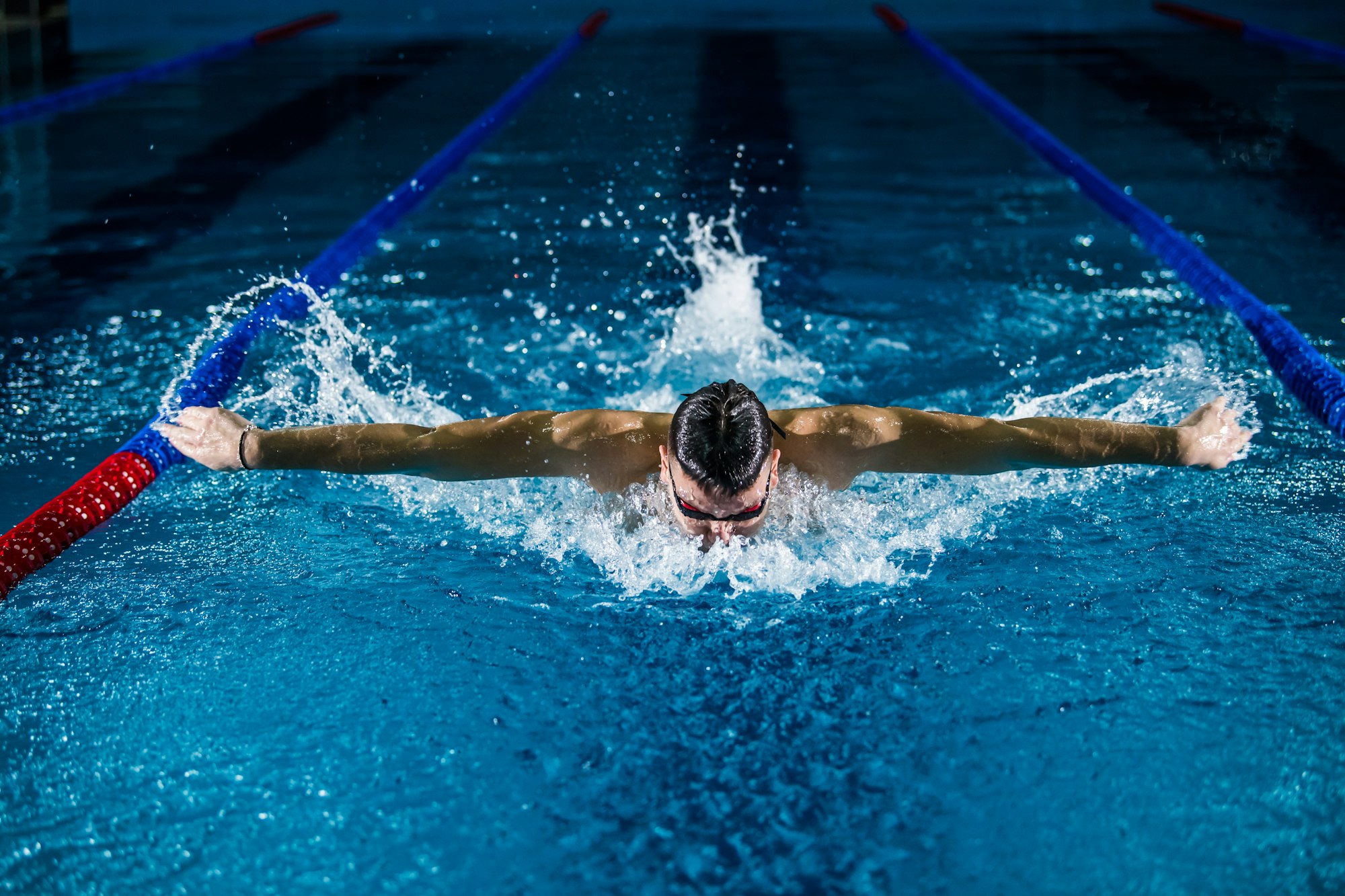Your gut health and gut bacteria are secretly influencing your athletic performance, physical prowess, and recovery for high-intensity workouts.
Your body is not just yours. Your colon is home to trillions of hard-working bacteria who tirelessly attempt to keep your health in perfect condition. It’s an ecosystem called the gut microbiome and its composition, as well as its diversity, are influenced by factors such as food, stress and even exercise.
That’s right exercise has many benefits for your gut like increasing movements through the digestive system and getting your blood pumping. It’s a two-way street though because these microorganisms can influence your athletic performance, too.
Table of contents
- 1. Nutrients, gut bacteria and athletic performance
- 2. Lactate and muscle recovery
- 3. Gut health and athletic performance
- 4. Exercise and microbiome diversity
- 5. Hydration and fluid loss
- 6. Deadly exhaustion and bacteria
- 7. Probiotics for athletic prowess
- 8. Sleep for physical recovery
In this article, we’ll look at some of the ways your gut bacteria can affect your athletic performance, and how this microbial ecosystem uses your activity levels to boost the production of vital nutrients and speed up your metabolism.
1. Nutrients, gut bacteria and athletic performance
The tiny organisms in your gut play a major role in your exercise performance from keeping your energy levels up to helping you to recover after a workout.
Gut microbes are important for the production of short-chain fatty acids (SCFAs) and essential nutrients that are needed for many vital functions within the human body. Exercising increases your metabolic activity which also means the body requires more energy to meet the demands placed upon it.
Exercise also increases the production of butyrate which has many functions and supports the health of the digestive system. One of its major roles is as an energy source for the cells that line your gut. All in all, butyrate has the ability to combat inflammation, keep your gut barrier strong, and prevent illness.
☝TIP☝The only way to know what’s in your gut microbiome is to take an Atlas Microbiome Test and discover your bacteria’s health status.
2. Lactate and muscle recovery
Exercise is an important part of staying healthy but, when you work out, your muscles produce a by-product called lactic acid. A build-up of lactic acid can temporarily result in sore and painful muscles. However, a type of gut bacteria called Veillonella atypica loves lactate and may improve exercise capacity.
This microbe is renowned for its lactate fermentation ability and transforms it into the short-chain fatty acids, propionate and acetate. Studies in mice have shown that giving them a strain of Veillonella from marathon runners actually increases their running time to exhaustion.
Because this gut microbe is found in elite athletes but not in sedentary people there is potential for it to become a performance-enhancing probiotic. That would make it particularly beneficial for people who are unable to achieve effective results when exercising like those with metabolic diseases such as obesity and type 2 diabetes.
☝FACT☝Probiotics are examples of foods and supplements containing a source of live bacteria which has many beneficial effects on the body.
3. Gut health and athletic performance
A diverse gut microbiome is important to human health. That’s because it influences many factors including nutrition, immunity and even your mental wellbeing. There are many microbial species living in the gut that help to keep your body running smoothly.
Beneficial effects of gut bacteria
| nutrient and SCFA production | regulate gut motility | regulate weight |
| prevent inflammation | supports immune function | dietary fibre metabolism |
The great thing about exercise is it has numerous benefits for your gut but the key is to not overdo it. It’s important to find that balance because overtraining, poor recovery times and the wrong nutrition can do more harm than good, both for your training and your microbiota.
3. Exercise and microbiome diversity
Exercise also increases the abundance of butyrate producers as well as an old favourite, Akkermansia muciniphila. This microbe is found in high numbers amongst athletes and is associated with a lower risk of metabolic disease.
The long and short of it is, exercise improves many factors associated with both physical performance and overall health. It does this mainly by enriching the microbiome diversity of the intestinal environment.
☝REMEMBER☝You can check your predisposition to athletic performance as well as find out how diverse your gut microbiome is with the Atlas Biomed Tests.
4. Hydration and fluid loss

Physical activity is thirsty work, your body loses water through sweating and breathing, leaving you at a greater risk of dehydration, especially during periods of prolonged exercise. Water is essential for life and even promotes a healthy gut.
Interestingly, the gut microbiome is also involved in maintaining good hydration during exercise. In other words, it helps the body to use water effectively. Dehydration weakens exercise performance and so it is vital to keep water levels balanced.
Studies have found that gut microbes contribute to your hydration status by influencing the transport of electrolytes such as sodium and potassium through the gut lining. The transport of water and mucosal hydration contributes to the normal functioning of the intestinal barrier.
☝FACT☝Electrolytes are minerals including sodium, potassium and chloride that have an electric charge and help fluid balance.
5. Deadly exhaustion
High-intensity exercise puts enormous strain on the body and, if performed at an elite level or in hot conditions, can increase the risk of exertional heat stroke, where the body’s core temperature exceeds 40.5C. Trust us, it's a serious condition.
Exertional heatstroke can also lead to endotoxemia, in which the gut barrier becomes weak and allows toxins to enter the bloodstream causing an inflammatory response. In severe cases, this can be deadly. Gastrointestinal symptoms can be an early warning sign of exertional heatstroke. Look out for:
- confusion
- irritability
- increased body temperature (>40.5C)
- shivering
- abdominal cramps
- vomiting
- diarrhoea
Some research shows that poor intestinal integrity can be a precursor to exertional heatstroke and that diet could play a significant role in its prevention. For example, eating a diet rich in plant-based foods is strengthens the gut barrier and improve microbial diversity.
6. Probiotics for athletic prowess
Exercise increases the body's energy demands, accelerates metabolism, and requires more nutrients to meet these new demands. Yet, factors like poor nutrition and overtraining can negatively impact various aspects of your health including the gut.
In athletes, there is some evidence to suggest that probiotics may help improve performance, health and recovery times. Probiotics help to diversify the gut microbiome and, in doing so, can help to prevent illness which could negatively impact training and performance. Here are some examples of probiotic foods:
- kimchi
- yoghurt
- lacto-fermented pickles
- milk kefir
- sauerkraut
- water kefir
- yoghurt
7. Sleep for physical recovery

Inflammation and obesity can cause sleep disturbances like sleep apnoea and fatigue which can be worrying and exhausting, but some studies have shown that exercise modulates the gut microbiome in a way that helps to improve sleep quality.
The gut microbiome is important for regulating hormones such as serotonin, GABA and cortisol, all of which can affect your sleep/wake cycle and your ability to nod off. More recent research also shows that people with a more diverse gut microbiome actually get better sleep.
Good sleep and feeling adequately rested are essential for performing at your best whether you’re a beginner or a pro. But it’s also important to remember that good gut health, adequate sleep and performance are all interlinked, so taking care of them all will ensure you reach your goals (or maybe even score them).
Just remember this
- Gut health athletic training is linked because your gut microflora produces essential nutrients your body needs during exercise.
- A lactate-fermenting microbe V. atypica found in elite athletes helps with endurance and recovery.
- Exercise promotes weight loss, gut barrier integrity, microbiome diversity and nutrient production.
- Gut microbes, electrolytes and plenty of water help you stay hydrated when you're working out.
- A healthy gut is key to reducing the risk of exertional heatstroke and endotoxemia, which are very serious conditions.
- Probiotics could help improve performance and recovery in athletes.
- Sleep, gut health, energy and performance are all interlinked, so giving all of them attention is important.
- Barton, W et al. The microbiome of professional athletes differs from that of more sedentary subjects in composition and particularly at the functional metabolic level, 2016
- Costa, A, V et al. Exercise, nutrition and gut microbiota: possible links and consequences, 2017
- Jäger, R et al. International Society of Sports Nutrition Position Stand: Probiotics, 2019
- Lambert, G. Intestinal barrier dysfunction, endotoxemia, and gastrointestinal symptoms: the ‘Canary in the Coal Mine’ during exercise-heat stress?, 2008
- Mach, N and Fister-Botella, D. Endurance exercise and gut microbiota: a review, 2017
- Monda, V et al. Exercise modifies the gut microbiota with positive health benefits, 2017
- Navarro, C et al. Exertional Heat Stroke, 2017
- Redondo Useros, N et al. HYDRAGUT study: influence of HYDRAtion status on the GUT microbiota and their impact on the immune system, 2015
- Scheiman, J et al. Meta-omics analysis of elite athletes identifies a performance-enhancing microbe that functions via lactate fermentation, 2019
- Zhang, Y, J et al. Impacts of gut bacteria on human health and diseases, 2015




















